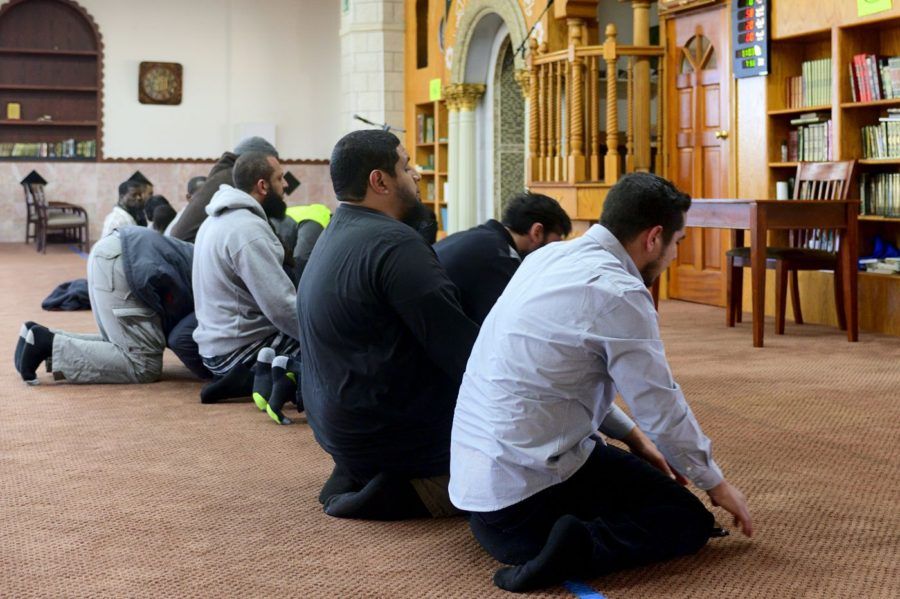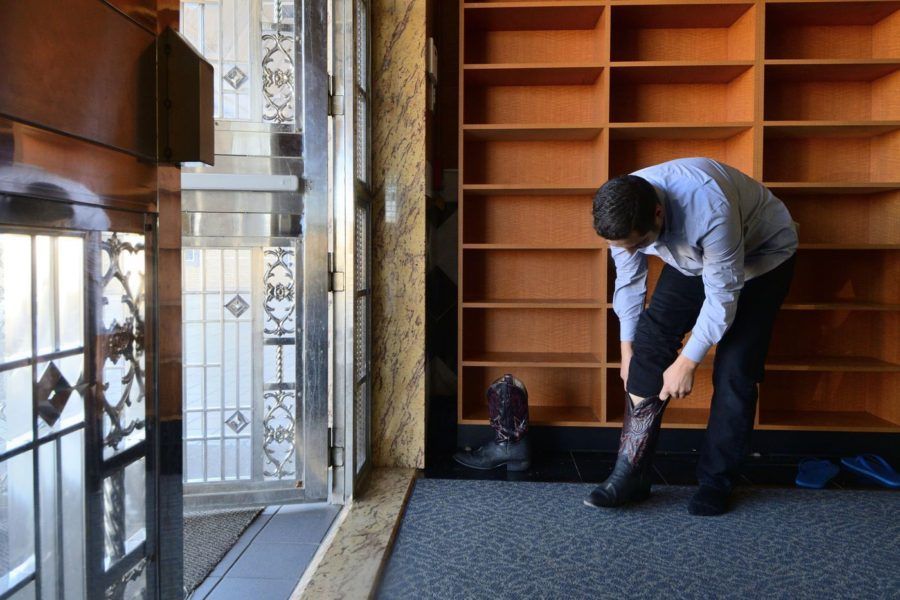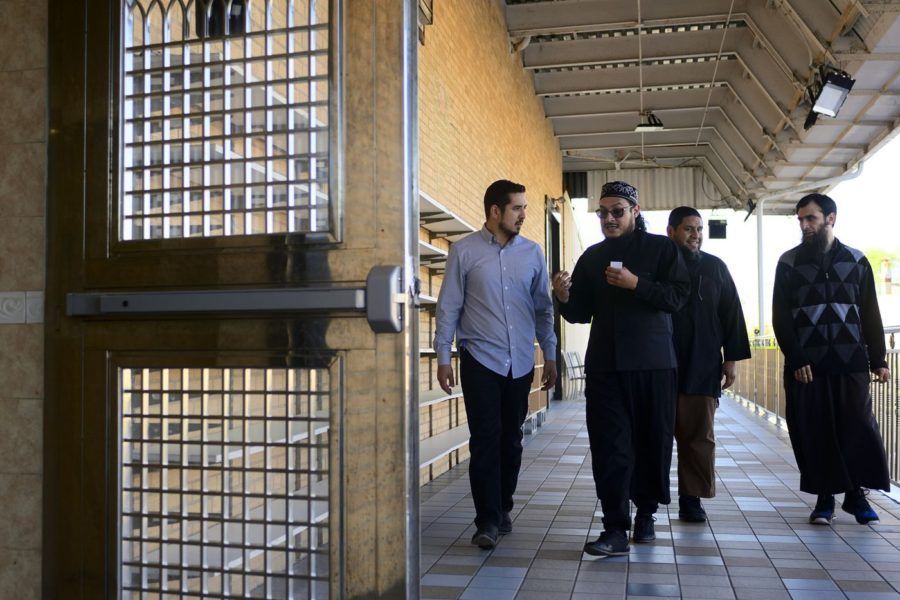
More Latinos are becoming Muslims: ‘Islam is not as foreign as you think’
By Valerie Russ
When she was 19 and living in South Florida, Bianca Guerrero became a Muslim, converting from the Christian faith of her parents, immigrants from El Salvador.
“I got kicked out of the house,” said Guerrero, now 35 and living in West Philadelphia.
Her situation is not unique. Guerrero was one of about 30 people attending a program last month at Masjid Al-Hidayah in North Philadelphia hosted by a Texas-based organization called Islam in Spanish.
The group, which formed in 2001 to provide Qurans, pamphlets, and videos to people who wanted to learn about the religion in their native language, has seen 160 Spanish-speakers convert in the Houston area in the last three years. And its visit to Philadelphia coincided with new statistics released from the Washington, D.C.-based Institute for Social Policy and Understanding that show Hispanics are the fastest-growing group in the nation to embrace Islam.
In 2009, only 1 percent of Muslims identified as Hispanic, the institute said. By 2018, it was 7 percent, according to its annual report, “American Muslim Poll: Predicting and Preventing Islamophobia.” There are 250,000 Latino Muslims in the United States, according to Islam in Spanish.
“That’s a 700 percent growth in less than 10 years, and no other group has grown at this rate,” Dalia Mogahed, the institute’s director of research, wrote in an email.
“The reasons people who convert give as to why they are attracted to Islam are that Islam emphasizes a personal and direct connection with God,” she wrote, “without the interference of an institution or clergy.”
Other reasons that Latinos have converted to Islam are varied: from the hip-hop culture of the 1990s when teenagers wore Malcolm X hats and read about the civil rights leader, to spiritual searches for a religion that rings true to them, to a resurgence in Latinos exploring their Andalusian roots, when Muslims governed Spain for 700 years until 1492.
“I tell people that Islam is not as foreign as you think,” said Imam Isa Parada, leader of a Houston mosque where sermons are in Spanish.

Jalil Navarro, of Houston, puts on his boots after taking part in the afternoon prayer at Masjid al-Hidaya mosque, in North Philadelphia.
There are some 4,000 words in Spanish that derive from Arabic, such as camisa for shirt, pantalon for pants, and azúcar for sugar, he added.
The purpose of Islam in Spanish is not to convert others, though, said Jalil Navarro, the community outreach director of the Islam in Spanish Center in Dallas.
“Our job is just to share,” he said. “The one who guides is God. … Whether he or she embraces God is in their own hands.”
Jaime Mujahid Fletcher, a Colombian-born convert who founded Islam in Spanish, said the group is close to opening a new Centro Islámico mosque in Houston, what will be the first standalone mosque led by Latino Muslims in the U.S. “Our center is going to be based on the beautiful designs of ancient Muslim Spain, such as in the Great Mosque of Cordoba.”
In Philadelphia, Navarro and Parada, who also is the educational director for Centro Islámico, talked about their own experiences as converts, including some of the challenges.
Parada, 43, was born in New York to Salvadoran parents and was an altar boy at his family’s Roman Catholic parish. Parada said the hip-hop culture led him to Islam. He was 14, on a trip to New York from Houston, where his family had since moved, and he saw friends who were not Muslim greeting each other with “As-salaam-Alaikum” and “Wa-alaikum-salaam.” (Peace be unto you. And unto you, peace.)
That led Parada to read The Autobiography of Malcolm X.
“I saw him going through that process and getting out of being a criminal,” Parada said. He also read how Malcolm X stopped hating white people after he traveled to Africa and the Middle East and saw Muslims of all races worshiping together.
At 19, Parada converted.

From left to right: Jalil Navarro, Ahmad Jose, and Imam Isa Parada (the fourth man is unidentified) are heading in for the afternoon prayer at Masjid al-Hidaya mosque, in North Philadelphia.
He asked his parents, who were concerned about his decision, to read a chapter in the Quran about Mary and Jesus. “Most Latinos think Muslims don’t believe in Jesus and Mary,” Parada said. “That gave them a different perspective of Islam.”
Parada said that because many Latinos come from Roman Catholic or other Christian denominations, it is common for family members to object to conversions. He urged anyone interested in Islam to be patient with their families, and described how Centro Islámico holds monthly potluck dinners for families to meet the Muslim community.
Navarro was also born Catholic, in Monterey, Mexico, and moved to Dallas at about 23 to get away from drugs and crime.
While attending English classes at a community college there, he used to bully his Muslim classmates. Muslims were depicted on TV as terrorists, so that’s what he called them. But his classmates didn’t fight back. He realized these Muslims were not the bad people he assumed they were.
“I realized I’m the one with the problem. … That’s when I started to learn a little bit more. But there was no material in Spanish.”
One day, he said, one of his classmates brought him books from Islam in Spanish. Over a period of three years, reading and studying about Islam, Navarro converted. And his family in Mexico embraced his decision.
“They saw Islam in me and how it changed my life and the person I became,” Navarro said. “They said, ‘Wow, this is amazing.’ ”
Guerrero’s family eventually came to accept her decision, too. In fact, both her mother and older sister converted to Islam.
“Not my dad,” she said. “He hasn’t yet, but he’s very proud of the woman I’ve become.”
Source: The Philadelphia Inquirer

